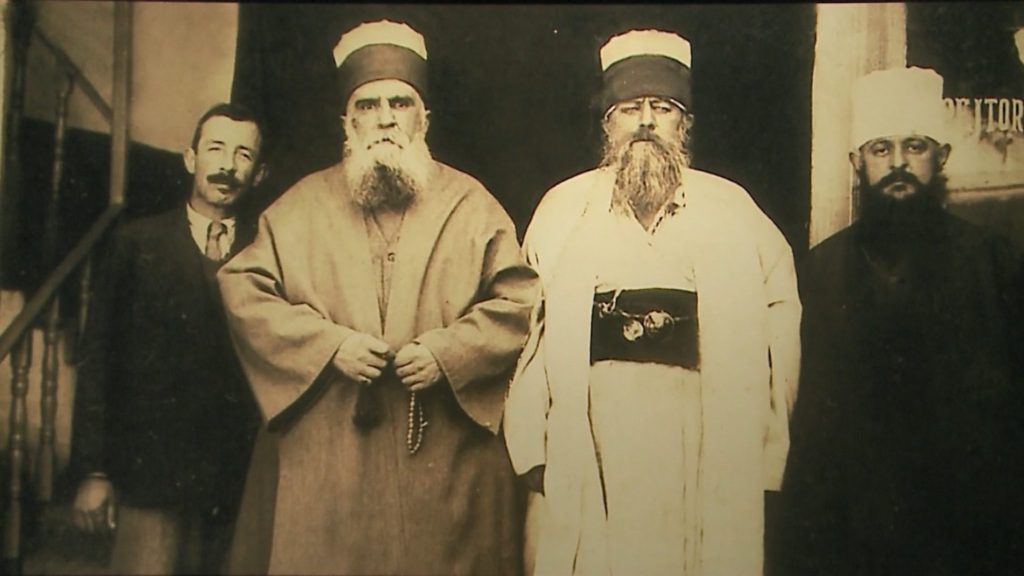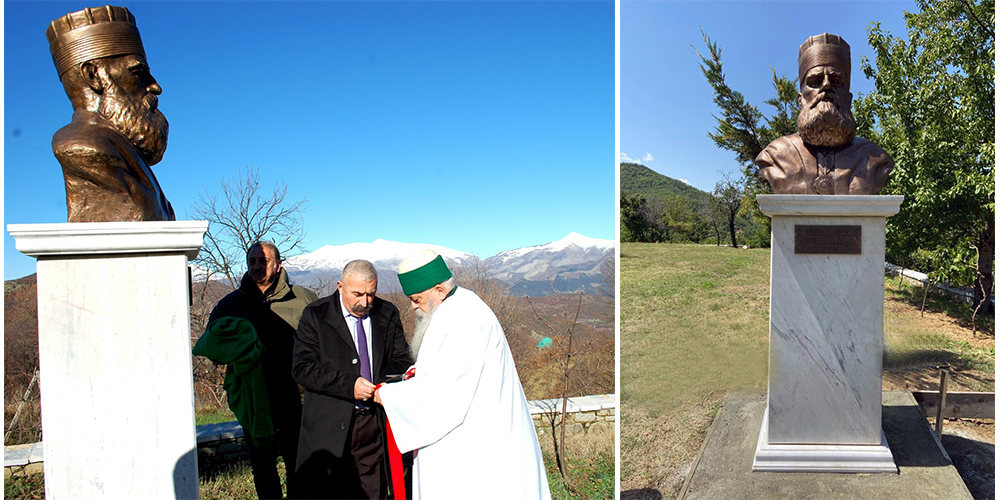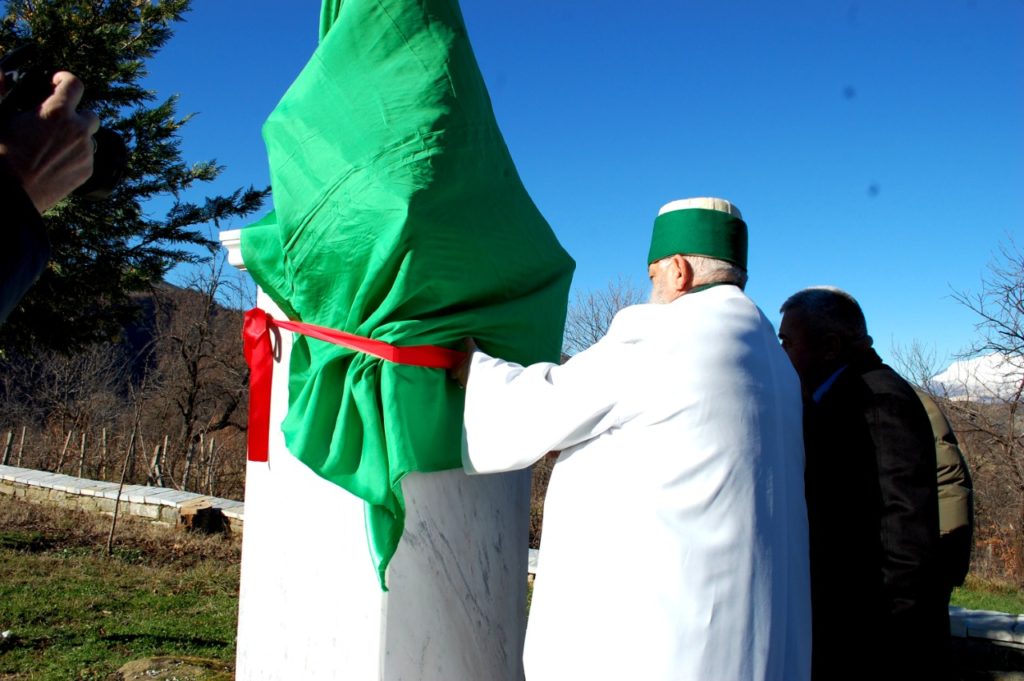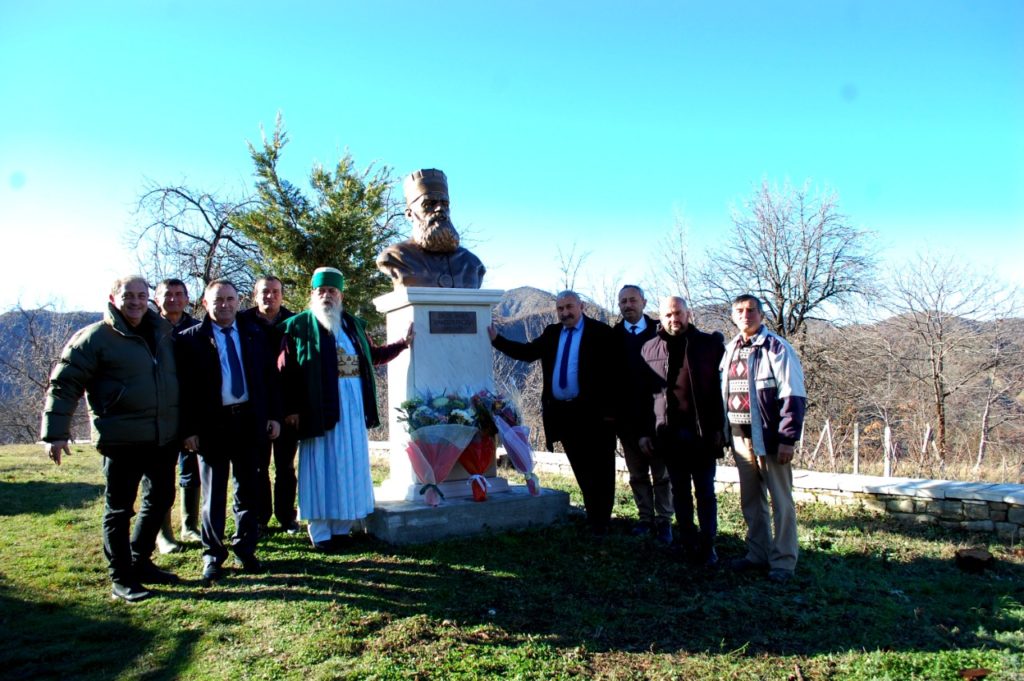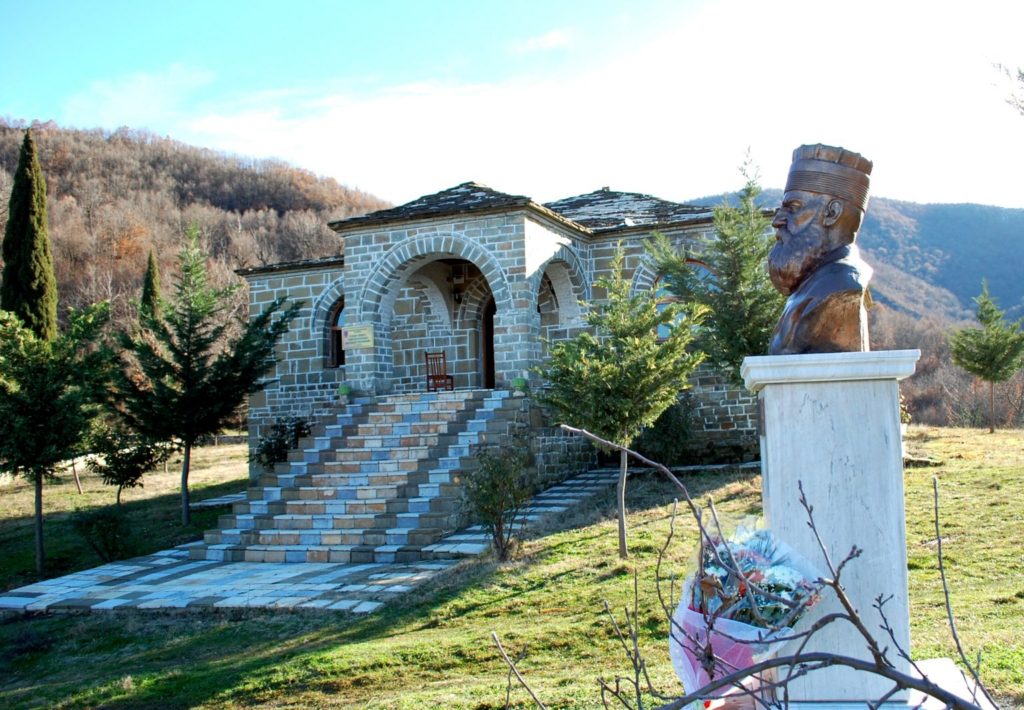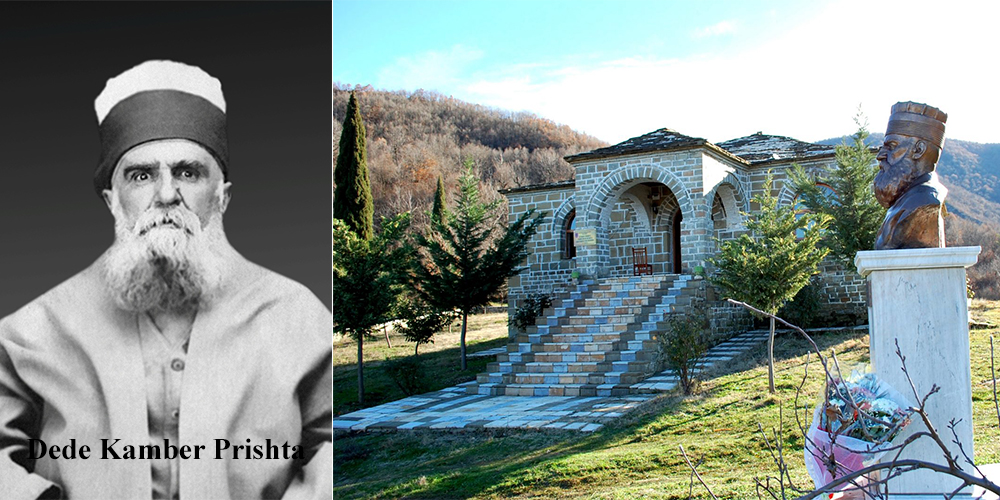
Today, is commemorated the 71st anniversary of the departure from this life of the famous Bektashi cleric, former Bektashi World Leader, Dede Kamber Prishtina, the patriot awarded with the “Honor of the Nation”.
Dede Kamberi was born in 1869, in a family of Bektashi faith and passed away in 1950. Kamberi’s father and mother were myhib in the tekke of Frashër, since its founding by the saint Nasibi Tahir Babai. The two Dede and Kamber’s father were dervishes in the Frashër tekke, but since the family was in dire need of agricultural work, Mehmeti’s father was named an honorary dervish and allowed to marry. The Dede continued to serve as dervishes until the end. One of them, dervish Kasoja, had the good fortune to stay in the tekke, when he was led by the great father Alushi, who, as it is known, waited and accompanied the renaissance patriot, Abdyl Frashëri. After the death of the dervish Kaso, whom Kamberi had had as his spiritual father, he undertook to take the Bektashi tradition further. It was 1910 when he accompanied to Turkey Haxhi Bektash, Ahmet Turhani and father Sulejmani of the Gjirokastra tekke, who were handed over by their grandfather by the then World Leader, Fejzi Dedei. Dervish Kamberi on this trip, in addition to Turkey, was able to visit Syria and Lebanon, from where he gained valuable experience as a Bektashi. He returned to his homeland in 1911, just when the national movement had begun. In the tekke of Frashër, father Kamberi worked diligently to preserve the Bektashi tradition. The occupation of southern Albania by the Greek andartes, found him along with tens of hundreds of other families, in the olive groves of Vlora as Muhajirs. There he became part of helpers for the remaining population in the middle of the four streets. His family members Meço family from cholera, lost 13 members. As soon as World War II broke out, Dervish Kamberi made his way to the United States to collect aid to rebuild war-torn tekkes. According to the documents, dervish Kamberi was well received by the leaders of the Federation “Vatra”, Konica and Fan Noli. It was the end of 1920 when he met Mit’hat Frashëri and came to Albania. As soon as he arrived in Albania, he received the news that a delegate had been appointed as a participant in the Bektashi Congress held in Prishta. After the death of his father Hyseni, he took over the management of the famous tekke of Prishta in Skrapar.
Everything was created after the arrival of father Kamber, especially in the addition of orchards and vineyards, apples, grapes, cherries, pears, plums, figs, manna, etc. Every day, over 15 villagers and 25 dervishes worked in the tekke. The tekke of Prishta became one of the largest in southern Albania with rich properties, cattle, bees, etc. Father Kamberi was very active, even occupying an important place in the ranks of the highest clergy of that time. Even after the First Bektashi Congress held in Prishta, Father Kamberi would remain at the forefront of activities to organize and strengthen the Bektashi order. In September 1929, in the Turhan tekke, in Korça, the Third Bektashi Congress was held, chaired by Father Kamber Prishta, who provided great assistance in drafting the statute and regulations of the Bektashis. On April 12, 1944, the prominent cleric, Father Kamberi, was elected Grandfather, but was not left alone. In 1945, he was arrested by the monist state and sentenced to 15 years in prison. The suffering in prison for this high-ranking Bektashi cleric has been enormous. He passed away in Tirana prison on April 5, 1950. He was decorated by the Presidium of the Albanian Parliament after the ’90s with the Order for patriotic activities of the First Class and the “Honor of the Nation”.
Prepared by:
Nuri ÇUNI
